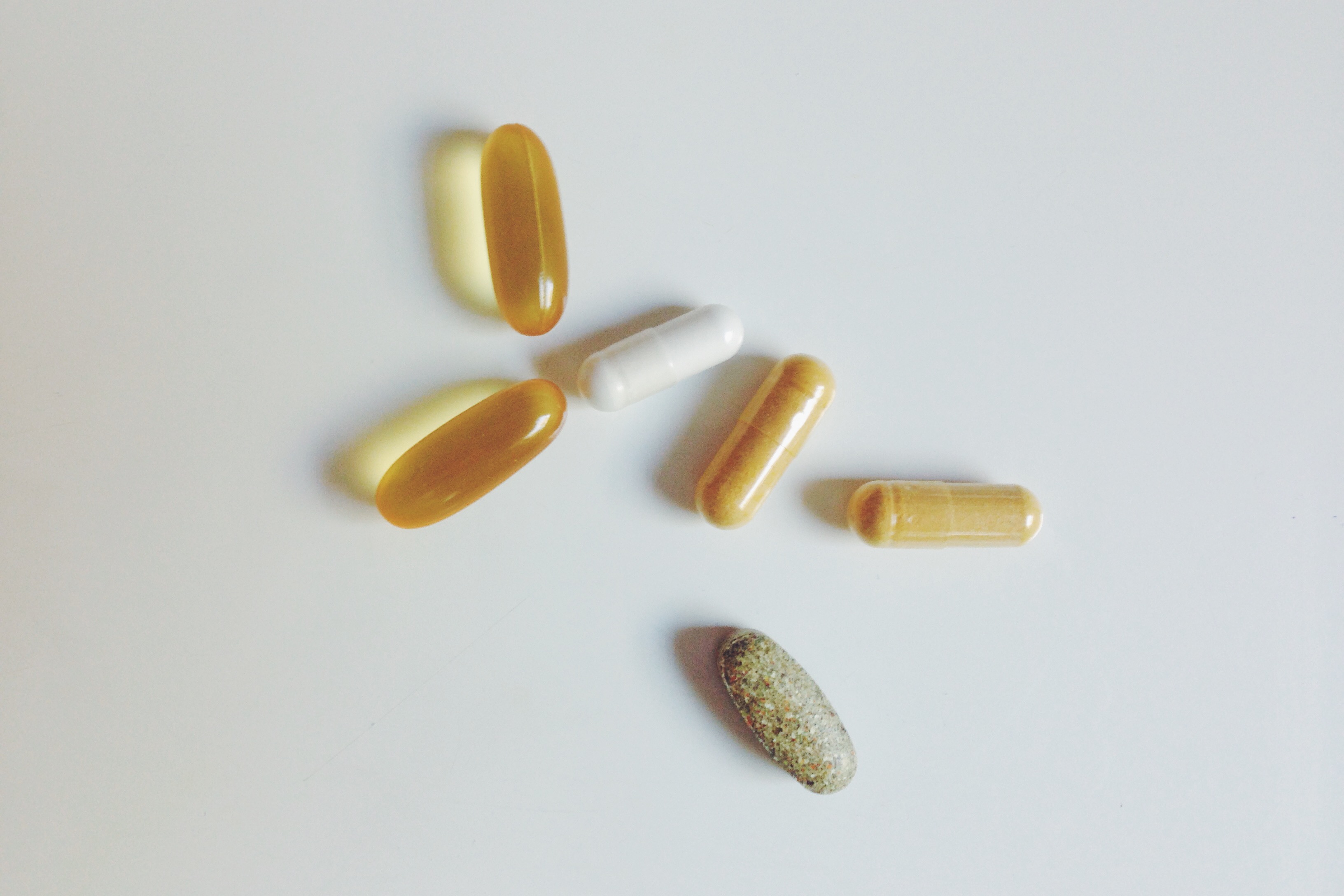What is biotin and how does it work?
Biotin is a popular hair supplement but could it help prevent hair loss and keep your locks shiny and healthy?


Biotin is a supplement on a lot of people's radars when it comes to addressing hair loss and improving hair health. If having healthy, shiny hair is a goal, then it's worth knowing more about this popular vitamin.
As hair loss can be unpleasant and frustrating for both men and women, many people often look for treatments to address this issue and also prevent it from happening in the first place. Many of these hair loss treatments contain biotin. What exactly is it and how effective is taking it in improving hair growth?
What is biotin?
Biotin is a B vitamin that is also called vitamin B7 or vitamin H. It's naturally found in certain foods, including liver, salmon, cheese, legumes, egg yolks, nuts, and sunflower seeds. It's water-soluble, so it doesn't get stored in the body. In addition to food sources, biotin can be taken as a pill or used as a topical treatment. It's been added to the best shampoos, hair serums, skin creams, and nail treatments.
Biotin benefits
Biotin has a multitude of health benefits, which can explain its popularity. According to Medical News Today, it helps in digestion, supports nail and hair health, improves skin, helps with pregnancy and breastfeeding, lowers blood sugar for people with diabetes, and may help multiple sclerosis treatment.
- Improves digestion: Biotin helps out the enzymes that process fats, proteins, and carbohydrates in food and turns them into energy.
- Supports nail and hair health: A biotin deficiency can cause brittle nails and hair loss.
- Improves skin: People with a biotin deficiency sometimes have skin issues like a scaly rash. Biotin may also help improve psoriasis.
- Helps with pregnancy and breastfeeding: A biotin deficiency is more common during pregnancy or breastfeeding, but medical tests should determine if supplements are needed.
- May reduce blood sugar: Biotin may be helpful for people with type 2 diabetes, but more research is still needed.
- May help multiple sclerosis treatment: There is also some research that suggests biotin supplements could help in the treatment of multiple sclerosis (MS).
A biotin deficiency is rare, but it is more likely for people who are pregnant or nursing, people who drink a lot of alcohol, or people who frequently eat raw eggs. Since people generally get biotin naturally in food, there's little evidence that taking extra is beneficial unless someone has a biotin deficiency.
Biotin side effects
Biotin is thought to be very safe even at higher levels since it doesn't get stored in the body. No side effects have been reported when taking up to 10,000 mcg (which is 10 mg) of biotin each day, according to the Mayo Clinic. However, biotin may cause unusual lab results, including thyroid test results, so people with a thyroid condition should consult a doctor before taking biotin.
It is possible for biotin to interact with some medications, according to the Office of Dietary Supplements at the National Institutes of Health. Other medications can affect a person's biotin levels. One type of medication to note is anticonvulsants used to treat epilepsy, which were found to lower biotin levels.
Sign up for the woman&home newsletter
Sign up to our free daily email for the latest royal and entertainment news, interesting opinion, expert advice on styling and beauty trends, and no-nonsense guides to the health and wellness questions you want answered.
When to use biotin (and when not to)
While some people have been tested and do have a biotin deficiency, taking biotin is often the general advice for anyone with hair loss. Taking a biotin supplement sounds like an easy solution, but there isn't much evidence proving that it works. However, some people feel the anecdotal results are convincing enough to make it worth trying out biotin for themselves.
Unless a biotin deficiency has been diagnosed, there's little data that supplements containing biotin are helpful. "The take-home message is that these skin, hair and nail supplements are really not necessary from a health standpoint," Dr. Zoe Diana Draelos, president of Dermatology Consulting Services, PLLC., High Point, N.C., told Dermatology Times. "The nutrition you need can be obtained very easily with a multivitamin or, probably better, through adjusting your diet to include more fruits and vegetables."
Doctors can test for a Biotin deficiency, but they can also look for other underlying health conditions that could be causing hair loss. Reasons could include stress, hormone imbalances, vitamin deficiencies, extreme dieting, genetic conditions, autoimmune diseases, or even some hairstyles or color treatments.
How to use and apply biotin
According to the Office of Dietary Supplements at the National Institutes of Health, adults should get 30 mcg of biotin per day, and people who are nursing should get 35 mcg per day. Many supplement pills contain between 1,000 and 10,000 mcg of biotin in each pill. However, it likely isn't useful to take a biotin supplement unless medical tests have found a biotin deficiency.
Biotin can also be found in some shampoos and other products which can be used once or twice a week by most people, those with oily hair can use it more frequently. Some outlets, like The Chicago Tribune, have reported that biotin shampoos can help strengthen brittle hair. However, other outlets, like Yahoo! News, that say there's no scientific evidence that this addition helps with hair loss.
Biotin is a vitamin found in food that can be taken as a pill or used in topical forms. While important for a healthy body, biotin deficiencies are rare, except during pregnancy and breastfeeding.
However, people hoping biotin will help reverse hair loss shouldn't experience adverse reactions to supplementing the biotin they already get from food.
A lifelong creative writer and beautyphile, Eunice Lucero-Lee graduated from De La Salle University in 2002 and was hired a year later to front all beauty coverage for Pink Magazine. A beauty, astrology, and pop culture obsessive and insider for over 18 years, Eunice is an internationally published editor (and now certified astrologer) whose work has been featured in publications such as Cosmopolitan, Esquire, and The Numinous, among many others.
-
 Butter yellow might be the colour of the season, but Amal Clooney is making me want to try sunshine shades
Butter yellow might be the colour of the season, but Amal Clooney is making me want to try sunshine shadesSpark some joy by adding some statement yellow pieces to your wardrobe just in time for summer
By Matilda Stanley Published
-
 Le Creuset has taken the gold standard literally — their 100 year launch features real gold and an iconic designer collaboration
Le Creuset has taken the gold standard literally — their 100 year launch features real gold and an iconic designer collaborationLe Creuset have turned 100 years old and to celebrate they have launched a new colour — Flamme Dorée — as well as a coffee table book with designers Assouline
By Laura Honey Published